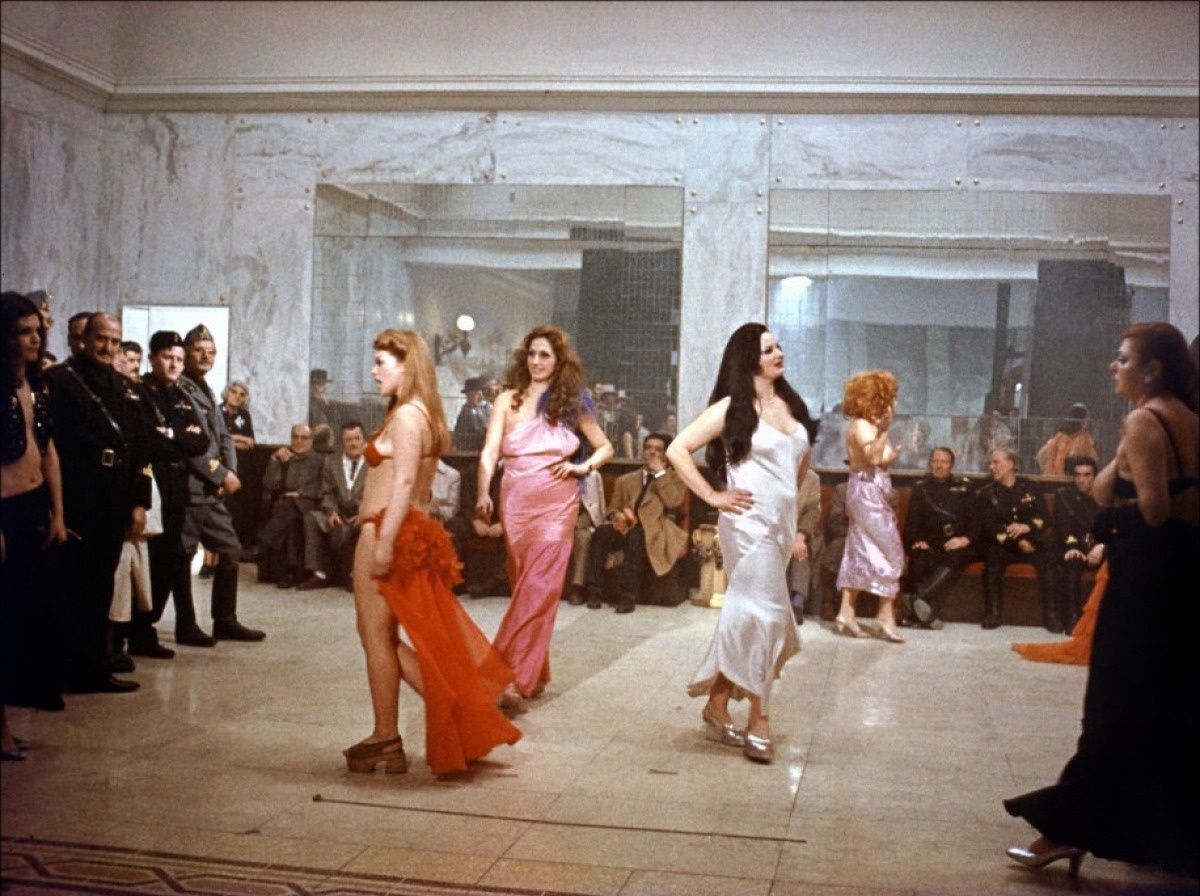by David Denby
Perhaps we shouldn’t be quite so impressed by the personal use of the film medium. If we are often bored with the new films of a director who has done great work in the past, it may be because his work is so personal it lacks variety and development. Caught up in his own world and fantasies, he may have lost touch with ours. Take Fellini, for instance. In his recent movies (Juliet of the Spirits, Fellini Satyricon, and The Clowns), the director’s celebrated “vision” has become ever more central; yet the narrative and dramatic elements in these films have grown so feeble that it’s been hard to stay interested in them to the end. Now, in Fellini’s Roma, a miscellaneous fantasia on the theme of Rome’s present-day disintegration, the director has totally liberated his obsessions from the discipline of telling a story or developing a character or even maintaining a comprehensible point of view. The movie is a perfect rubbish of “vivid” Fellini images piled one on top of another, a tedious catalogue of the fantastic and the bizarre—countless “ordinary” Romans, made up to the hilt, clowning and sticking their tongues out and furiously eating and defecating; fat, strutting whores and gigantesque old ladies; noisy, untalented vaudeville entertainers; interior sets that look like steam rooms and exteriors that resemble graveyards; a rain-soaked traffic jam that turns into Armageddon-on-the-freeway; an ecclesiastical fashion show that becomes an extravagant satire of Catholic panoply (at least we suppose it’s a satire—when everything is so wild, we have no ground from which to judge whether a given sequence is meant satrically or whether that’s the way Fellini naturally sees things and wants them to be).
In the absence of characters, he fills his movies with random grotesques. He loves their theatrical presence and no doubt he is sincere in insisting that they are part of life, too, but if he allows them only a quick turn to show their stuff and rarely gives them any human dimension we can relate to, then isn’t he exploiting them just like any cheap sideshow entertainer? His sense of wonder is still alive, but a mad decorator’s instinct has taken over: the people, pressed into the spectacular backgrounds, come in matching bizarre colors with the sets.
The movie without characters is a fairly new development for Fellini; the absence of narrative is not, for he was never really a narrative filmmaker in the traditional sense. Some of his superb early movies, such as Vitelloni (1953) and Nights of Cabiria (1957), were cast in picaresque form, without a central action to tie everything together, but they had a wonderful emotional coherence and continuity, and Fellini really made us care for his outsiders and dreamers and failures. Later on, his curiosity and gentleness deserted him; 8½, his great confessional film, was a monstrous act of egotism, although in 1963 Fellini was still capable of seeing when his ego was destructive or absurd.
The director also appears in Fellini’s Roma, but he no longer knows when he’s absurd and so he makes a useless exhibition of himself. We see him arriving in Rome before the war, a quiet, handsome, and excessively polite young man from the provinces (played by Peter Gonzales, a Texan), and we wince with embarrassment—when Fellini came to Rome, he was a ravenous hustler who worked for the cheap illustrated magazines and for newspapers, drawing caricatures of society figures to accompany the gossip columns. Later in the movie he appears in his own person, moving around the city and pretending to direct a camera crew, and again we wince, not only because the crew in the movie cannot be shooting what we see (such is the feeble pretense), but because the notion of Fellini as an alert documentary observer is so ludicrously inappropriate. He never observes anything anymore; his eye, turned inward, is completely fantastic. Fellini’s Roma is as personal as a movie can be, and it’s an oppressive experience.
The Atlantic, January 1973





